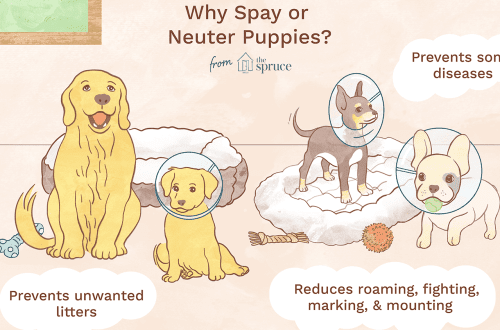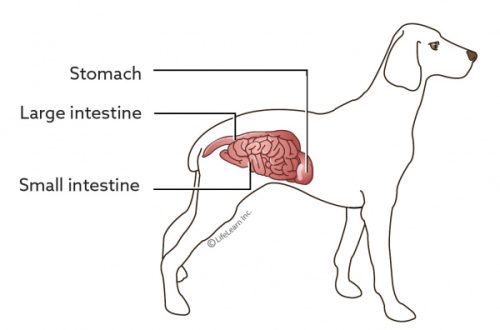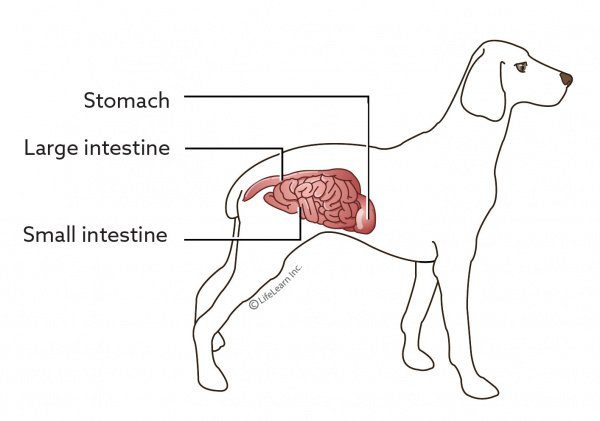
Coronavirus in dogs: symptoms and treatment
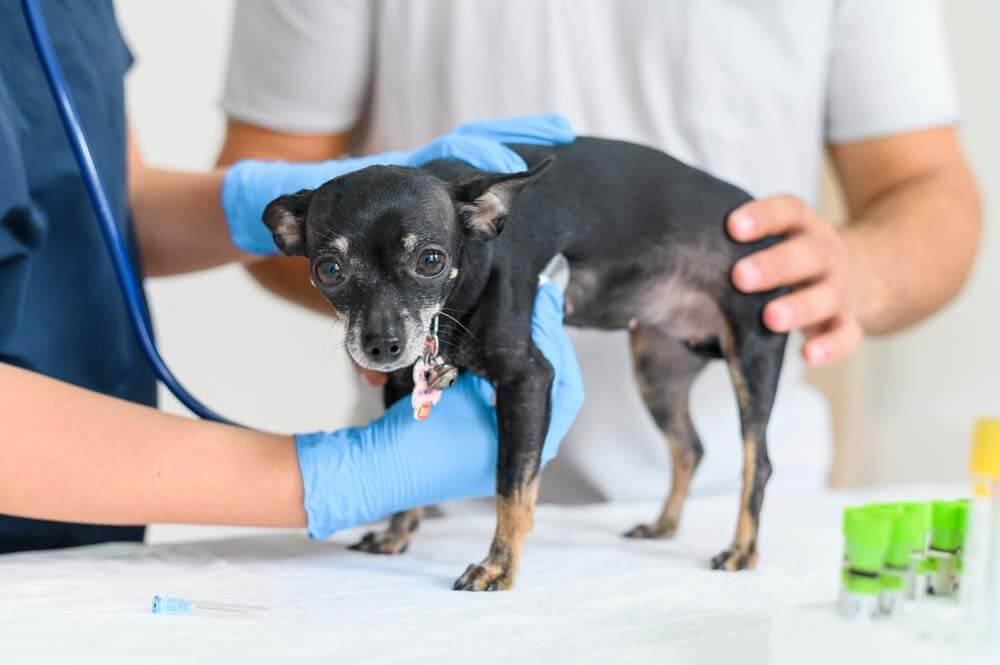
Contents
It is an RNA-containing virus belonging to the large family of coronaviruses. Each of them often affects only one host, that is, there are coronaviruses of pigs, cats, ferrets, birds and others. But the ability to mutate, that is, change, can lead to the fact that sometimes the virus jumps not only from one organ system to another, but also from one animal species to another.
It is important to understand that, despite the similarity in structure, coronaviruses are very different. For example, the canine coronavirus, although it belongs to the same family with COVID-19 and is similar in structure, differs from it, including the course of the disease it causes: in dogs, the virus multiplies in the intestines, and COVID-19 in humans mainly affects the respiratory tract . Coronavirus is especially common in animals that are kept crowded, such as in kennels or shelters. In the external environment, the virus is unstable, it is easily destroyed on surfaces with the help of disinfectants. It is transmitted through the faeces of sick animals.
The isolation of the virus in animals after recovery can last several weeks and even months.
Due to the ability to mutate, the virus can cause a different course of the disease in dogs.
The first and most common form of the disease is intestinal, leading to enteritis (inflammation of the small intestine) and gastroenteritis (inflammation of the stomach and small intestine). Coronavirus gastroenteritis can be combined in a dog with other pathogens – for example, parvovirus, adenovirus, salmonellosis, campylobacteriosis and others. Combined infections are much more severe and can cause death of the animal.
The second possible form of the disease is respiratory. One of the strains, that is, varieties of coronavirus, causes damage to the respiratory tract, but only in conjunction with other pathogens – parainfluenza, adenovirus, bordetelliosis, etc. That is, the canine coronavirus itself does not cause significant damage to the animal, but is part of a group of pathogens leading to an infectious respiratory disease.
The third form of the disease is systemic. It can be caused by a pantropical strain that, in addition to the intestines, affects other organ systems. Such cases are rare and are registered in the literature in the form of individual very rare outbreaks.
Next, we will take a closer look at the course of coronavirus in dogs, its main symptoms and treatment tactics.
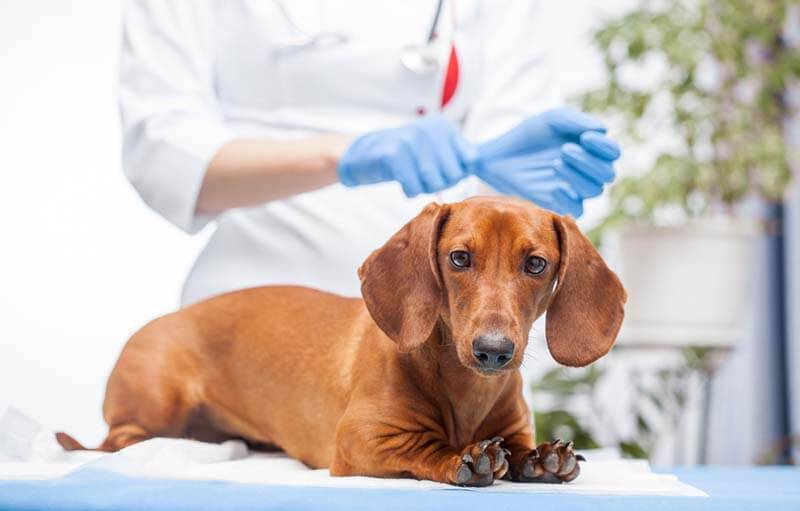
Symptoms
Most often, the virus causes coronavirus enteritis, that is, inflammation of the intestines in a dog. The main manifestations will be:
Diarrhea, sometimes mixed with blood and mucus.
Fever.
Oppression.
Refusal of food and water.
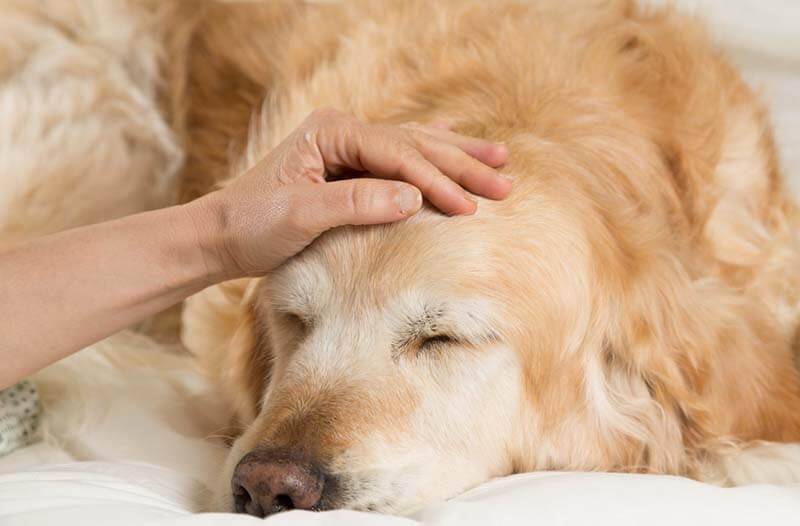
Vomiting is often observed. The severity of the manifestation of the disease is very different – from a mild disorder of the gastrointestinal tract (GIT), which resolves in a few days, to a severe course with watery diarrhea, uncontrollable vomiting, dehydration and fever. Adult dogs are often asymptomatic carriers. And small puppies can even die in severe cases. Combined infections are especially dangerous when the ongoing disease is complicated by other pathogens – bacteria, parasites, viruses.
With a respiratory disease, the symptoms are mild, quickly pass, and most often they are completely absent.
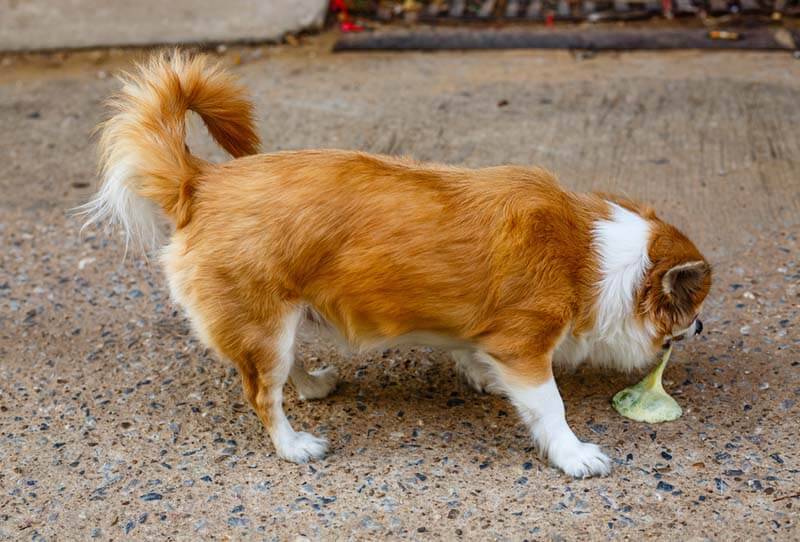
Diagnostics
To detect coronavirus in dogs, there are currently quite accurate research methods, for example, PCR or rapid testing in a clinic. For diagnosis, feces of a sick animal or scraping from the rectum are used. But in fact, it is not so easy to make an accurate diagnosis – coronavirus enteritis – in dogs. The fact is that often it is asymptomatic and the animal can simply be its carrier for a long time. Therefore, despite the characteristic clinical signs and positive test results, it is not always possible to say with complete certainty that it was the coronavirus that became the only and indisputable cause of the dog’s malaise.
For a more accurate understanding of the situation, the veterinarian may conduct additional studies: a general clinical blood test, an ultrasound examination of the gastrointestinal tract, and an analysis of feces for parasites. In severe cases, it is important to exclude other infections that cause similar symptoms: parvovirus gastroenteritis, canine distemper.
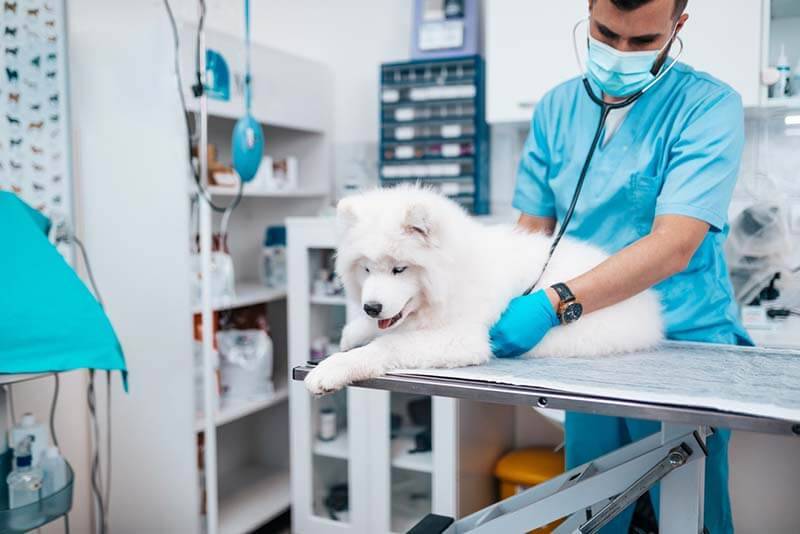
Therapy for canine coronavirus enteritis will depend on the severity of the symptoms. Adult dogs most often do not require the help of a veterinarian. They tend to get sick easily, and sometimes completely asymptomatic. In such cases, the use of sorbents is sufficient, for example, Enterozoo, Procolin, Smecta, Enterosgel. They help stop diarrhea. It is necessary to use drugs 2-3 times a day, observing a break of 1 hour with food and other medicines inside before and after taking.
You can also give the animal probiotics, they help restore beneficial bacteria in the intestines. May temporarily switch to a specialized therapeutic diet. Such diets are formulated taking into account the needs of an animal with gastrointestinal pathologies – they are easily digestible, have a high nutritional value, and contain fiber that helps stop diarrhea.
In severe cases – fever, prolonged diarrhea, vomiting, depression – more intensive therapy is needed.
Since there is no way to influence the virus directly, that is, there are no drugs that could destroy it, treatment is based on eliminating symptoms and supporting the body during its struggle with it.
In most cases, elimination of vomiting, reduction of nausea will be required. For this, preparations based on Maropitant or Ondansetron are most often used.
To relieve dehydration and replenish electrolytes, infusion therapy is carried out – droppers. It is possible to use gastroprotectors – Famotidine, Omeprazole, especially with frequent vomiting. In some cases, antibiotics are needed, as a coronavirus infection in a dog can be complicated by bacteria, especially if it is severe. It is important to provide the pet with a calm environment – a quiet, cozy place to relax, where no one will disturb the dog.
Diarrhea may require frequent walks, but they should be very short, it is important to avoid increased physical activity until complete recovery. It must be remembered that the feces of a sick animal are a source of infection for other dogs, so it is important to properly dispose of them after a walk, and not leave them on the street. Pollution of the earth with faeces is one of the constant sources of intestinal infections.
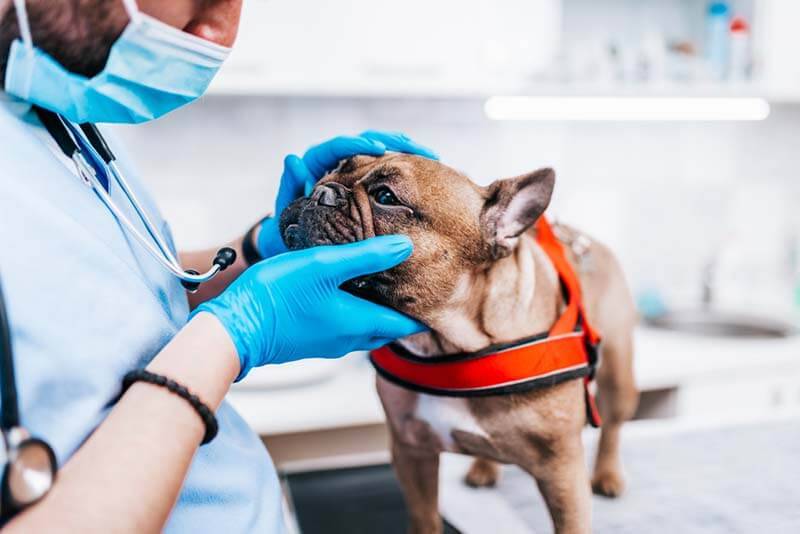
The disease can be severe in puppies, especially very young ones. Newborns get their immunity from their mother. Therefore, the most dangerous coronavirus for those babies who have not received protective antibodies for some reason. This also applies to those puppies that are fed artificially.
When combined with other pathogens, the risk of a severe course is very high.
With diarrhea, vomiting, fever, lack of proper nutrition, puppies lose fluid and electrolytes very quickly. They may also develop hypoglycemia, a critical drop in blood glucose. Therefore, if a puppy is suspected of having a coronavirus, it is very important to contact a veterinarian in a timely manner to provide comprehensive assistance to the pet. Deaths from coronavirus infection in dogs are rare, and are usually associated with comorbidities, complications, or lack of proper care and treatment.

Prevention
There is a vaccination against the coronavirus infection in dogs. Coronavirus is included in some complex vaccines. The problem is that vaccination does not provide sustainable long-term immunity and does not prevent infection. Given that most often coronavirus enteritis is quite mild, vaccines for it are not so widespread. However, a coronavirus vaccine may be useful for dogs in shelters or kennels, especially if they experience frequent outbreaks of various intestinal infections.
Also, for prevention, it is important to observe the following rules:
Timely and regularly vaccinate the dog against other diseases, since combined infections are the most dangerous.
Regularly treat pets for worms.
Provide the animal with a complete and high-quality diet.
Teach your dog not to pick up on the street.
Clean up and dispose of feces after your pet during walks.
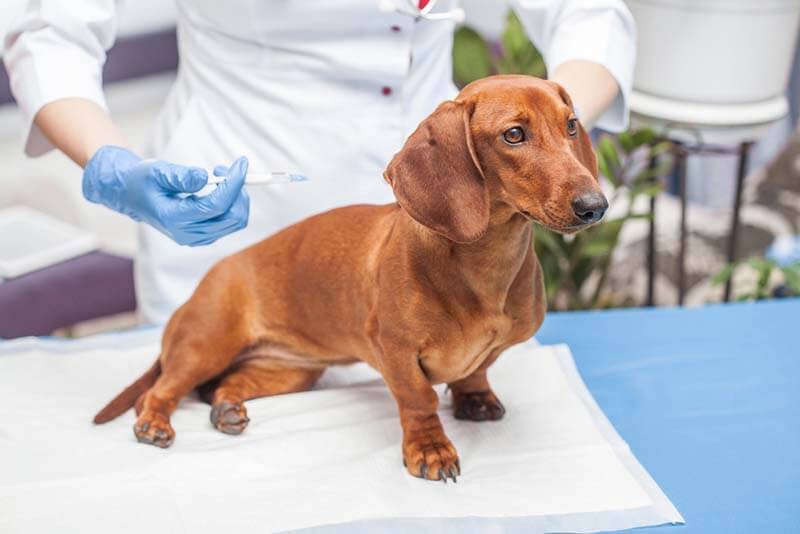
Danger to humans
Despite the similarity in structure and the ability to change, coronaviruses, as a rule, prefer one host. Some of them, after mutations, can become more dangerous and even infect other species, including humans. But virologists know this and keep a close eye on the most variable strains. Canine coronavirus is not potentially dangerous to humans; humans cannot become infected with it. It is important to separate a sick pet from other animals, including not taking walks with other dogs until complete recovery.
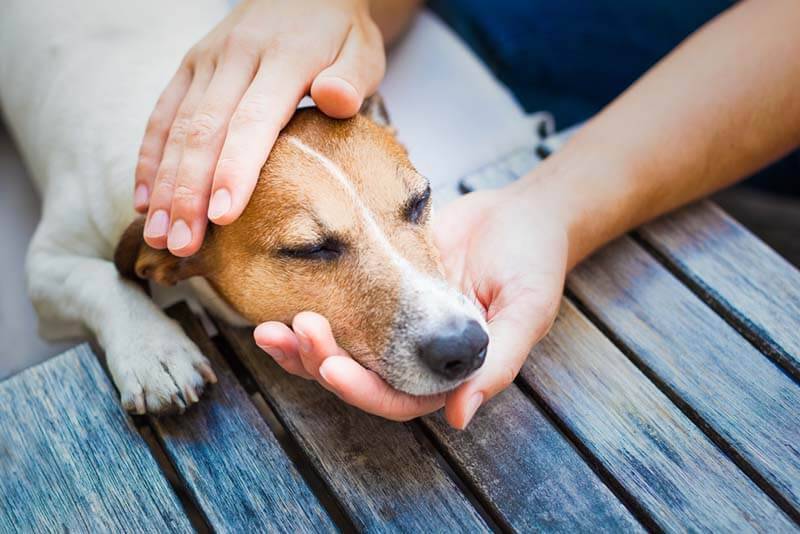
Coronavirus in pets is enterotropic, that is, it affects, first of all, the gastrointestinal tract.
Infection occurs fecal-orally – by sniffing, licking and eating the feces of a sick animal.
The main symptoms will be diarrhea, fever, vomiting, depression.
Most often, the disease occurs in places where dogs are crowded – in shelters, kennels.
In most cases, coronavirus enteritis is mild, and in some it is completely asymptomatic.
More dangerous is the infection in the combined version, when it is complicated by other pathogens – viruses, parasites, bacteria.
In puppies, the disease can be more severe, but even in them, fatal cases are extremely rare.
Vaccination against coronavirus exists, but it is not very effective against infection and does not provide long-term stable immunity.
Coronavirus can cause respiratory illness in dogs, but only in conjunction with other pathogens.
Answers to frequently asked questions
Sources:
Craig E. Greene. Infectious dieseases of the dog and cat, fourth edition, 2012
Krylova D.D. Coronaviruses in dogs and cats: genetics, life cycle and diagnostic problems // Scientific and practical journal “Veterinary Petersburg”, No. 3-2012. // https://spbvet.info/zhurnaly/3-2012/koronavirusy-sobak-i-koshek-genetika-zhiznennyy-tsikl-i-problemy-diagn/





